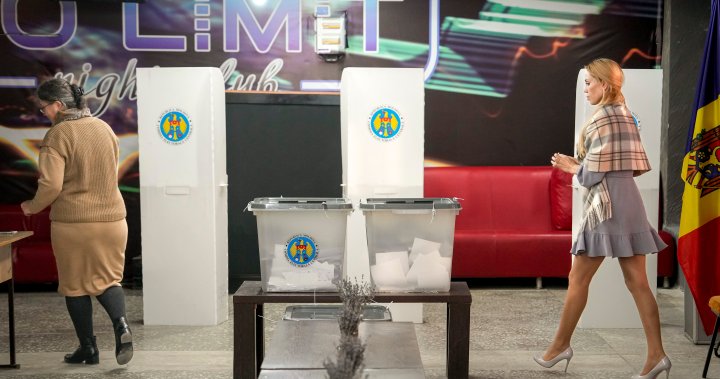
Moldova on course to join EU. What to know about the narrow vote
Global News
The “No” vote had looked to be ahead in the referendum right until the last few thousand votes were counted from the country’s large diaspora.
Moldovans voted by a razor-thin majority in favor of securing the country’s path toward European Union membership, electoral data showed Monday, following a ballot that nearly caused a major setback for the pro-Western president, who accused “criminal groups” of trying to undermine the vote.
With 99.41% of the 1.4 million votes counted in the EU referendum held Sunday, the “Yes” vote stood at 50.39%, to 49.61% who voted “No,” according to the Central Electoral Commission.
The “No” vote had looked to be ahead right until the last few thousand votes were counted from the country’s large diaspora. A loss would have been a political disaster for the pro-Western government, which strongly supported the pro-EU campaign.
On Monday, President Maia Sandu reiterated claims that unprecedented voter fraud and foreign interference had undermined the votes, calling it a “vile attack” on Moldova’s sovereignty.
“Unfortunately, the justice system failed to do enough to prevent vote rigging and corruption,” she told a news conference. “Here, too, we must draw a line, correct what went wrong, and learn the lesson. We heard you: we know we must do more to fight corruption.”
Moldovan authorities claim that Moscow has intensified a “hybrid war” campaign to destabilize the country and derail its EU path. The allegations include funding pro-Moscow opposition groups, spreading disinformation, meddling in local elections and backing a major vote-buying scheme.
In Brussels, the European Union’s executive branch, the European Commission, said that its services had also noted Russian interference in Moldova, and it underlined its continued support for Moldova on its EU accession path.
“This vote took place under unprecedented interference and intimidation by Russia and its proxies, aiming to destabilize the democratic processes in the Republic of Moldova,” spokesperson Peter Stano said.











